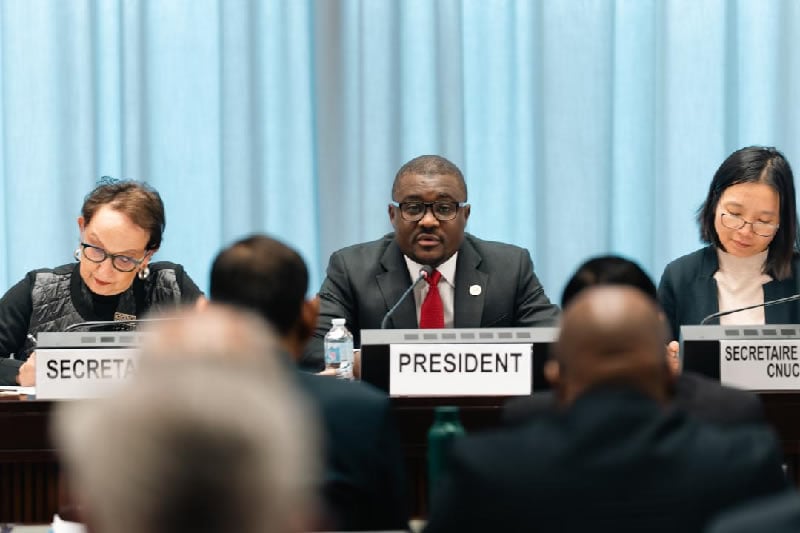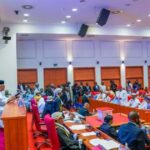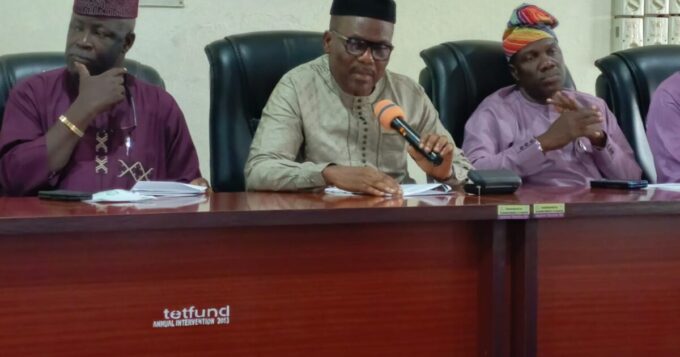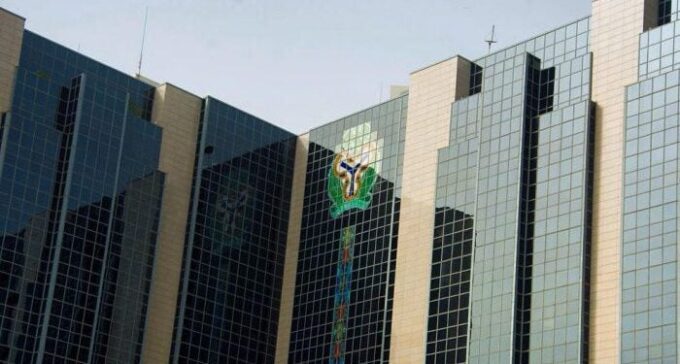
The Financial Reporting Council of Nigeria has made it clear that no form of whitewashing will be tolerated in sustainability reporting. Also, board directors will be held directly accountable for the accuracy of sustainability and climate disclosures once these requirements become mandatory.
This was disclosed by the Executive Secretary/Chief Executive Officer of the FRC, Dr Rabiu Olowo, on Wednesday at the Directors’ Engagement Series jointly facilitated by the FRC and the Climate Governance Initiative Nigeria, held under the theme, ‘IFRS S1 and S2: What Every Board Director Needs to Know’.
According to Mitiga Solutions, IFRS S1 and S2 are the first two sustainability disclosure standards from the International Sustainability Standards Board, issued in June 2023.
The PUNCH reports that Nigeria was the first adopter of the standards in Africa. The country is currently in the voluntary adoption phase, with 2028 scheduled to be the kick-off of compulsory compliance.
Speaking at the engagement, the FRC boss said, “One key message today is clear: boards are accountable for sustainability and climate governance. The CGI has partnered with us to deepen this conversation in the boardroom, where governance responsibility truly resides. What we are doing today will significantly support the future of sustainability and climate standards adoption in Nigeria.
“Nigeria, through the FRC, became the first African country to announce the adoption of the ISSB standards at COP27 in Egypt in 2022. We didn’t stop at the declaration. We set up the Adoption Readiness Working Group comprising major stakeholders in Nigeria’s corporate reporting and governance ecosystem: the Central Bank, SEC, NGX, professional accountancy bodies, the Big Four, assurance firms, real estate companies, and independent sustainability experts. The ARWG worked for eight months and produced the Roadmap Report for the Adoption of IFRS Sustainability Disclosure Standards in Nigeria, now widely recognised and celebrated.”
Olowo added that the country produced the first set of early adopters in Nigeria, MTN, Seplat, Fidelity Bank and Access Bank, who serve as models for all corporate entities as adoption becomes mandatory in 2028 for the 2027 reporting year.
“Since publishing the roadmap, we have focused on voluntary adoption, awareness, capacity building, training, and advocacy. To date, we have conducted more than 32 webinars, workshops, and engagements, all free of charge in the public interest. We have trained over 168 entities and more than 1,800 participants across sectors. Nigeria was featured in the ISSB Global Reporting Jurisdictional Profile, and the FRC won the UNCTAD ISAR Award for Sustainability Leadership, a national achievement.
“My message to boards is simple: climate and sustainability governance is a core fiduciary responsibility. Directors are accountable. You must ensure your sustainability disclosures are decision-useful, verifiable, comparable, and integrated with financial information. This requires stronger internal processes, better data quality, improved management capacity, and risk management frameworks that incorporate climate-related risks.”
He reaffirmed, “The FRC is dedicated to supporting all organisations. We are enhancing guidance, stakeholder engagement, and collaboration with CGI to ensure boards grasp the effects of sustainability and climate issues. Our goal is for Nigerian companies to be compliant, credible, and globally recognised in sustainability reporting. Whitewashing will not be tolerated; our efforts target real impact.”
The FRC boss also highlighted the direct link between adopting sustainability standards and attracting capital.
“I would personally invest in a company aligned with sustainability over one that is not, even if the latter posts higher profits. Sustainability alignment signals long-term viability. Boards should view IFRS S1 and S2 as strategic tools, not regulatory burdens. They help organisations anticipate risks, seize opportunities, and build trust. The future of business is sustainable, transparent, responsible, and data-driven. Your leadership will determine how well your organisations adapt and succeed,” he stated.
Also speaking at the event, Partner & Head, Enterprise Risk and ESG Services, KPMG in Nigeria, Tomi Adepoju, observed that in Nigeria, many board members and executives still doubt the relevance of sustainability. She affirmed that board directors need to let go of that mindset, as there are real climate risks impacting businesses, and they are very real in the country.
“These issues disrupt livelihoods and national development, making sustainability unavoidable. Sustainability now shapes global power dynamics. Businesses range from sceptics to mere compliance followers to true believers; the goal is to shift everyone towards meaningful action,” she said.
Adepoju, who spoke on the theme “Geopolitical Trends and How They Are Shaping Sustainability Reporting”, added, “Directors must understand these trends, track regulatory changes, and ensure their organisations have strong systems and controls. Boards must invest in sustainability teams, ESG data tools, and assurance processes. Doing so strengthens investor confidence and market access.
“Ultimately, boards must drive resilience, integrate geopolitical risks into sustainability reporting, use scenario analysis, and demand accountability to safeguard trust, capital, and long-term value.”
Some of the questions that she said directors must ask include, “How is the board providing oversight and internal controls for sustainability reporting? How are sustainability risks and opportunities embedded in business strategy? How prepared is the organisation to adopt emerging reporting standards? How does the organisation ensure comparability, consistency, and stakeholder trust? And how will the organisation stay competitive while navigating fragmented regulations?”
Mrs Remi Odunlami, a non-executive director at FirstBank, which is one of the voluntary adopters of the sustainability standards, stated that the bank has a unit dedicated to ESG. “You need a sustainability champion, and it doesn’t have to be the CEO.” She added that corporate entities must be willing to invest in the process because it is not cheap.
The Chairman of the Nigerian Integrated Reporting Committee, Dr Innocent Okwuosa, who presented a paper at the engagement, said that boards must look at sustainability reporting not just from the angle of risks but also opportunities, while noting that the buy-in of the board was crucial to improved results.
“The ones that can make it possible for the implementation to work are the board. Awareness is key; they must be aware, and they must authorise the resources with which this implementation can be done.
“We need to get their buy-in. Without the buy-in of the board, nothing happens. That’s why we see that for you to do IFRS S1, the board must come on board; without that, it is not possible. What we discovered is that the awareness is low among the board, and once the awareness is low, the companies cannot do anything.
“We’ve also seen that what has happened is that the people promoting sustainability are low-level people. They are unable to reach the board. They are also unable to even make a case for why sustainability should be undertaken by organisations. This is because the board wants to hear, ‘If we are doing this, what is in it for us?’ Communicating what is in it for them has been a problem for the sustainability champions. Programmes like this take the message directly to the board. The board should know that sustainability is no longer a CSR issue. Sustainability is now a strategy through which the organisation shows how it’s adapting to its business environment.”
In the areas of opportunity, Okwuosa said that there has been an increased awareness of carbon emissions, and businesses were tailoring products to fit that shift in consumer behaviour.
“One of the things happening is a change in consumer behaviour; consumers are also shifting towards low-carbon products. If you’re a company and you’re not sensitive to this change in consumer behaviour, you’ll be in the past. You’ll continue to produce products that consumers are not going to want.
“Then, sustainability involves cost-saving measures. When, for instance, you look at your carbon and you want to reduce it. If every other company is doing that and you are not, you’ll be placed at a competitive disadvantage. Even though we’re saying sustainability issues, they have become cost-saving measures; they have also become innovation, because through innovation you are able to bring the products that your consumers want.
“These are the opportunities. Take, for instance, the banking industry; banks have come up with loans that are targeted at climate-related issues, like solar panels, and they have become loans that banks have created.”


















Leave a comment